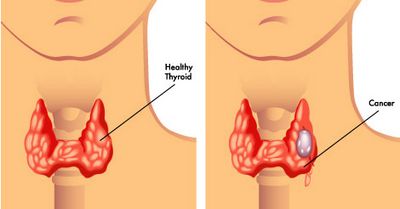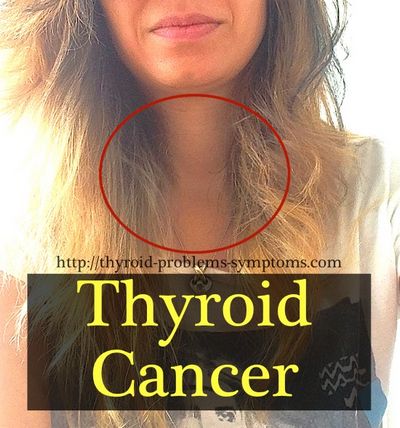If you have ever noticed your child’s hair becoming oily and brittle in the winter months, you know that your child has an under active thyroid.

The condition will often clear up as the spring arrives. In some cases, the child may not be able to hold their head high and may need additional care.
When to see a Doctor for a Thyroid Nodule an ultrasound and, in rare cases, a biopsy can confirm if an enlarged thyroid gland is cancerous. Thyroid tumors are very uncommon in children and teenagers, but if a teenager or a child has an enlarged thyroid gland, it’s more likely to be cancerous (malignant) than adults. The symptoms will vary from person to person, and if left untreated, can spread to the lymph nodes or other parts of the body. This makes it very important to contact a doctor immediately.
Thyroid cancer is most common in adults over the age of fifty. It can be difficult to detect, so it’s important that if symptoms develop, you seek medical attention right away. The majority of thyroid cancers are benign tumors. However, there are a small percentage of cases that require surgery. The symptoms of a benign thyroid tumor include fever, weight loss, fatigue, and unexplained weight gain.
The presence of nodular hyperplasia and hyperthyroidism in the body can result in symptoms of fatigue, heart palpitations, chest pain, and problems with swallowing and/or speaking. These symptoms may seem to be related to other conditions.

It is important that any medical doctor visit is accompanied by a complete physical examination to rule out any preexisting health conditions, especially if the thyroid symptom does not respond to conventional treatment options.
Treatment options for thyroid disease vary depending on the stage of the condition and the specific cancer. There is no one treatment regimen that works for everyone, and each patient is responsible for choosing the best course of treatment to ensure proper and safe management of their condition.
Treatment of hyperthyroidism typically involves medications to slow down the production of thyroid hormones and suppress symptoms such as weight gain, depression, increased appetite, or lethargy, fatigue, and changes in mood. Treatment is usually performed on an outpatient basis, meaning the doctor will visit the patient at least twice a year for follow ups. The medications must be taken only on a long term basis.
Many patients also choose to undergo hormone replacement therapy (HRT) to replace the thyroid hormones lost in the normal turnover of the body as the body produces its own hormones. Hormone replacement therapy also known as thyroxine and triiodothyronine, are often prescribed to reduce symptoms such as depression, decreased appetite and/or an increase in appetite. Hormone therapy can be prescribed in conjunction with surgery to reduce tumor size and to reduce side effects.
Treatment of this condition requires that the doctor understand the exact cause of the thyroid problem. Once the root cause is determined, the correct course of treatment is determined, the tumor is diagnosed, and the appropriate medication is administered, the doctor can effectively monitor the condition and monitor the progress of the hormone replacement therapy to allow for proper and safe management of the patient’s hormone levels.
Some thyroid cancers have been found to be precancerous. These tumors may require aggressive treatment in order to control them and prevent recurrence or growth of the cancer.
Although thyroid cancer is generally considered to be relatively common, it is still quite concerning to many people, especially to those that have recently discovered that they may be at risk of contracting this cancer. The earlier cancer is detected, the greater the chance for successful treatment will be.
If you are concerned about your general health, or you suspect you have a thyroid problem, it is very important that you talk to your family doctor, or health care provider about any symptoms you experience. and whether or not there is a possibility that your thyroid cancer could be linked to your thyroid, which could be a life threatening condition.